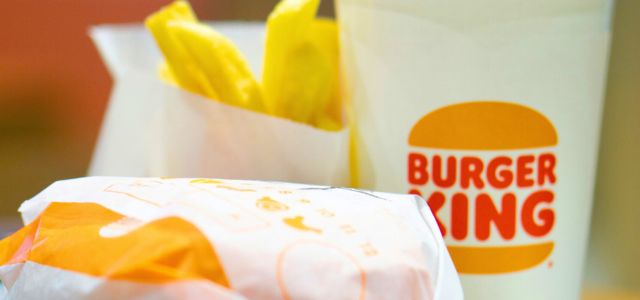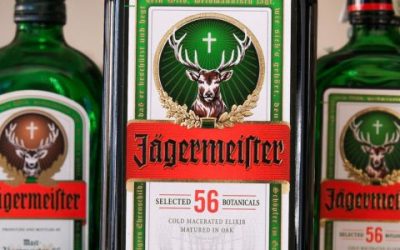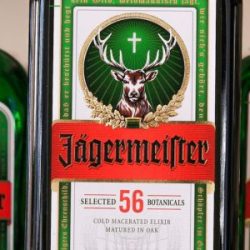In a recent legal battle that has drawn significant attention from international business leaders and trademark attorneys, the global fast-food giant Burger King Corporation faced a formidable challenge in India.
The dispute, centered around the use of the BURGER KING trademark, highlights the complexities of trademark law, especially when multinational corporations expand into markets where local businesses have long operated under similar names.
The Pune Court’s decision: a victory for prior use
The conflict began when Burger King, which manages a global network of over 13,000 fast-food outlets, entered the Indian market in 2014. Upon discovering that a local restaurant in Pune had been operating under the ‘Burger King’ name since 1992, Burger King Corporation filed a lawsuit against the owners, Anahita and Shapoor Irani.
Burger King sought a permanent injunction to stop the Pune restaurant from using the name, alleging trademark infringement and claiming damages for harm to its brand reputation.
In a pivotal decision, the Pune Court dismissed the suit, ruling in favor of the local restaurant. The judge emphasized that the Pune-based establishment had been using the ‘Burger King’ name since 1992, long before the US corporation registered its trademark in India in 2006. The court found that the local restaurant was the honest and prior user of the trademark, a key concept in Indian trademark law that grants rights based on the earliest continuous use of a mark.
The court’s ruling highlighted that despite Burger King’s global recognition, the local restaurant’s continuous and unchallenged use of the name since 1992 established its legitimacy. This decision serves as a critical reminder to international companies that trademark disputes in emerging markets can be more complex than anticipated, particularly when local businesses have long-established use of similar marks.
Key takeaways for international businesses
- Prior use doctrine: The Pune Court’s decision underscores the importance of the ‘prior use’ doctrine in Indian trademark law, which can grant rights to those who have been using a trademark continuously and in good faith before others.
- Territorial nature of trademarks: This case illustrates that trademarks are territorial, meaning that global brands must respect the rights of local businesses with prior use, even if the brand is well-known internationally.
- Due diligence: Multinational companies must conduct thorough legal due diligence when entering new markets to identify potential conflicts with existing local businesses, ensuring they are aware of any prior users of similar trademarks.
- Strategic legal planning: Securing local trademark registrations and understanding regional legal frameworks are critical steps in avoiding protracted legal disputes when expanding into new markets. Multinational corporations should not assume that their global trademarks will automatically override local rights.
- Ongoing legal battles: The Bombay High Court’s interim relief suggests that legal disputes over trademarks can be lengthy and complex, requiring ongoing legal vigilance, adaptability, and strategic planning.
- Global expansion considerations: The case underscores the importance for businesses to engage with local legal experts who are well-versed in the nuances of regional trademark laws, helping to navigate the intricacies of these disputes effectively.
Bombay High Court’s interim relief: the battle continues
While the Pune Court’s decision was a significant victory for the local establishment, the legal battle is far from over. Burger King appealed the decision to the Bombay High Court, which granted interim relief to the US-based company. The court stayed the Pune Court’s order, allowing the US corporation to continue its legal pursuit until the next hearing scheduled for September 2024.
The Bombay High Court’s interim relief highlights the ongoing uncertainty in this case and the challenges faced by international companies in protecting their trademarks in foreign jurisdictions. The outcome of this dispute will be closely watched by trademark attorneys and international businesses alike, as it could set a precedent for similar cases in the future.
Conclusion: strategic considerations for global expansion
The Burger King case in India serves as a cautionary tale for multinational corporations expanding into new markets. Businesses must not only secure trademark registrations but also carefully consider the potential for conflict with local entities that may have been using similar marks for years. Engaging with local legal experts and understanding the nuances of regional trademark laws can help mitigate risks and avoid lengthy legal battles.
For trademark attorneys, this case underscores the critical role that prior use plays in trademark disputes, particularly in countries with complex and well-established legal frameworks like India. As global markets continue to expand, the lessons from this case will be invaluable for legal practitioners and businesses navigating the intricacies of international trademark law.

Written by Dinesh Parmar
Managing Partner, Parker & Parker Co. LLP
You may also like…
UEFA partners with Alliance for Creativity and Entertainment to enhance global anti-piracy strategy
October 21, 2025 - The Union of European Football Associations (UEFA) has officially joined the Alliance for...
EUIPO and UANIPIO welcome the integration of Ukraine’s trademarks into TMview
The European Union Intellectual Property Office (EUIPO) and the Ukrainian National Office for Intellectual Property...
Jägermeister succeeds in opposing the EU trademark application Alten Kräuterfrau for alcoholic beverages
Mast-Jägermeister SE filed an opposition on the grounds of Article 8(1)(b) – likelihood of confusion between the signs...
Contact us to write for out Newsletter














